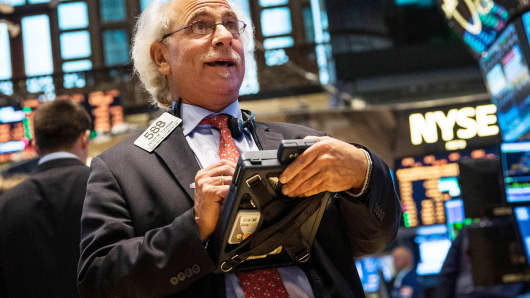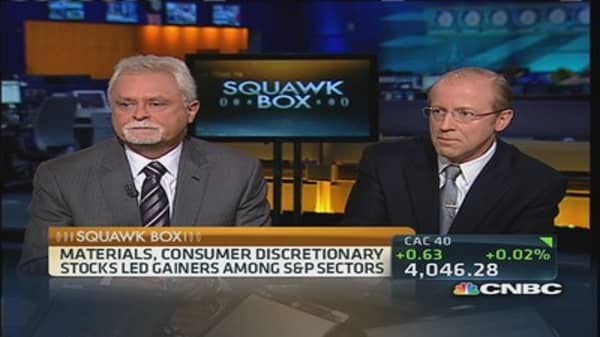Elsewhere:
1) Speaking of growth: Europe's purchasing managers' indexes (PMI) all showed expansion, with particular strength in the UK, where the index moved to 60.2 from 56.9 in June — the highest level since December 2006.
Meanwhile, China's PMI rose to 54.1 from 53.9, but the private firm HSBC/Markit reported PMI stood at 51.3, was unchanged from June. Still, prices fell to a 9-month low, a sign of weak demand.
2) the slower economic environment in China has repercussions for tech spending. IDC estimates IT spending growth worldwide of 4.6 percent in 2013, down from the previous forecast of 4.9 percent growth. 2012 saw growth of almost 6 percent. PC spending will drop 7.2 percent.
3) someone finally downgraded Qualcomm . Piper Jaffray did it, to Neutral, on falling high-end smartphone demand. They noted that Atmel and others indicated high-end smartphone demand was waning and low-end smartphone demand was picking up. If that happens, it will reduce QCOM's royalty revenue growth, by reducing average wholesale prices of smartphones, Piper Jaffray says.
That's a rarity: of 32 analysts that track the stock, there are only 5 others who have a Hold rating, and only one Sell. All the others are Buy or Overweight.
4) Tyson Foods is set to open at a historic high after the poultry producer reported better-than-expected earnings and revenues and confirmed its full-year revenue guidance, which is above analyst expectations. TSN posted third quarter profit of 69 cents per share, nine cents above estimates, as strong demand for chicken and beef offset a decline in pork sales. The company sees 2013 revenue of $34.5 billion compared to Wall Street's $34.2 billion view. In early trading, the stock popped by 4 percent to trade just shy of $30.
—By CNBC's Bob Pisani











